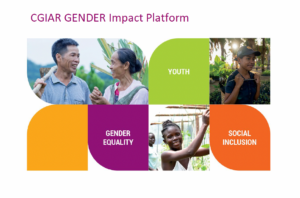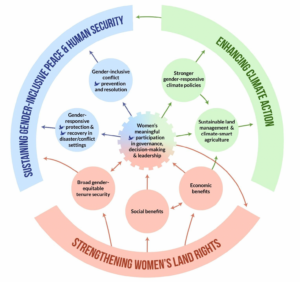This CGIAR paper emphasizes that research on the resilience of aquatic food systems to climate change must take gender and intersectional dimensions into account. Quantitative and qualitative research must transcend the household level and gender-binary (men-women) focus to explore adaptation strategies of actors in small-scale fisheries and aquaculture chains. In addition, to address entrenched power inequalities at formal, informal, local, and systemic levels, it is imperative that there be more collaboration across research, interventions, and policies on climate adaptation and mitigation, and on aquatic food systems.
Authors: Rahma Adam, Anamika Amani, Rob Kuijpers, Esther Smits and Froujke Kruijssen
Source: CGIAR




